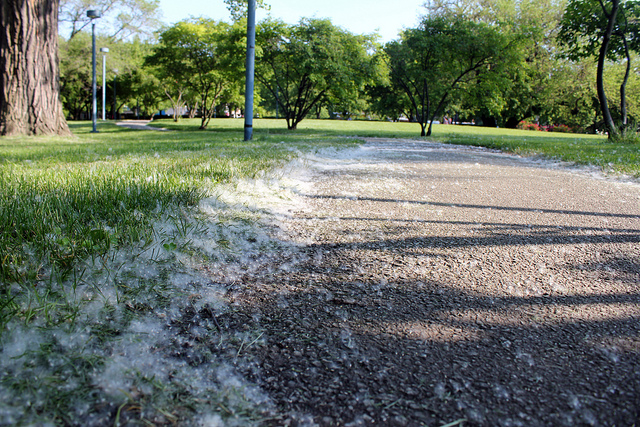Asthma Attacks and Summer Allergies May Go Hand in Hand

Does your asthma flare up when the flowers come into bloom? There are things you can do to keep seasonal asthma in check.
There are many types of asthma, affecting about 25 million Americans. About half of these sufferers can blame their breathing problems on an allergy to pollen or another common substance.
Know your triggers. A trigger is anything that can lead to an asthma attack. Examples could be pets, pollen, dust, mold, or smoke. When you are around something that triggers breathing problems, write it down. This will help you identify a pattern to your symptoms.
Share your trigger record with your doctor. After you have found some things that may trigger your asthma, you and your doctor can devise a plan for how to deal with them.
Ask your doctor about allergy testing. Skin or blood testing may be used to diagnose allergies to certain substances. Skin testing involves pricking the skin on your back or arms with one or more small doses of specific allergens. The amount of swelling and redness at the sites where your skin was pricked is measured to identify allergens to which you react.
Use a peak flow meter, if your doctor recommends it. He or she can provide you with a peak flow meter. It is a simple tool that can warn you when your lung function is lower than usual, before you even begin to have a problem breathing.
Understand your medications. Some “control medications” reduce swelling in the airways that causes asthma symptoms, and should be taken regularly. Others (called “rescue medications”) relax the muscles around the airways to help relieve tightness, and should be taken as needed for the quick relief of sudden, severe symptoms. If you take your rescue medication more than twice a week, your asthma is probably not as controlled as it could be, which may be affecting how well you feel. Make sure to tell your doctor how frequently you are using your rescue medicine.
Don’t be afraid to ask for help. The nurses and other asthma experts on the CDPHP Care Team are just a phone call away for members who need help. If you have questions about symptoms, medications, or proper inhaler use, call 1-800-365-4180.
Does exercise make your asthma worse?
Exercise is almost always considered one of the best ways to improve your health, but people with exercise-induced asthma may experience wheezing, tightness in the chest, a cough, and shortness of breath after a vigorous workout.
Don’t let that keep you from being active. Having good control of asthma in general will also help prevent exercise-induced symptoms.
Here are some other tips for sufferers of exercise-induced asthma:
- Be sure to follow your doctor’s orders regarding controller medications. These could include mast cell stabilizers, inhaled steroids, and leukotriene modifiers. By taking them even when you don’t feel sick, you can help keep symptoms from developing.
- Using your short-acting rescue inhaler (for example, albuterol) shortly before exercise can also help.
- Always warm up gradually before a run or game.
- If the air quality is poor, consider postponing your workout. There are many online resources to help you know what’s in the air, including the U.S. Environmental Protection Agency’s AirNow and Enviroflash from the New York State Department of Environmental Conservation.
- If you would like more information about living healthy with asthma, call the CDPHP Care Team at 1-800-365-4180.
 The Daily Dose
The Daily Dose
 Jane Wilson
Jane Wilson
Comments are closed.